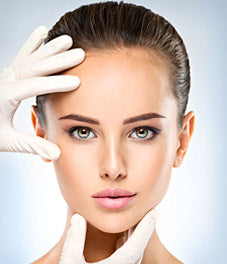
Hormone Therapy for Men
ANTI-AGING HORMONE THERAPY FOR MEN
Hormones play a crucial role in the functioning of your body. Hormone levels and balance are extremely important for your health, physical shape, and well-being. As a man ages, his body becomes less effective in producing these vital hormones. Hormone levels fall to unhealthy levels creating a hormone imbalance in your body. Many men can notice the symptoms resulting from a decline in testosterone levels in their 30’s and 40’s. In fact, testosterone levels begin to drop as early as your 20’s, and Testosterone Replacement Therapy (TRT) can restore and maintain health and wellness.
With Omni Centers’ Bioidentical Hormone Replacement Therapy (BHRT), you can balance your hormone levels and optimize the synergy within your body to see an increase in energy, performance, libido, sleep, recovery time from exercising and many other health and lifestyle improvements.
CALL TO SCHEDULE A COMPLIMENTARY CONSULTATION: (360) 338-0289.
WHAT ARE BIOIDENTICAL HORMONES?

Bioidentical hormones are derived from plants and have the same molecular structure as the hormones produced by your own body compared to those synthetic (and patented) HRT hormones that have some significant differences.
CALL TO SCHEDULE AN APPOINTMENT:
360.338.0289WHAT IS TESTOSTERONE?

Testosterone is men's primary sex hormone. It is mainly responsible for many of the characteristics associated with men- deeper voice, body and facial hair, bigger muscles, etc. Testosterone also plays a major role in sexual maturity, fertility, and sexual performance.
WHAT IS LOW TESTOSTERONE?
As a person ages, testosterone production decreases but it can
drop below the body’s usual range, also called andropause.
Testosterone levels naturally start to decrease after the peak
age of 18 and some men notice significant symptoms of low
testosterone (low-T) by the age of 35. The severity of these
decreases and associated symptoms can vary significantly from
guy to guy.
SYMPTOMS OF LOW TESTOSTERONE
- Erectile dysfunction (difficulty getting or maintaining erections)
- Difficulty sleeping/insomnia (falling or staying asleep and association with low testosterone and sleep apnea)
- Reduction in muscle mass (and ability to build muscle mass)
- Reduced bone mass
- Decrease in sex drive
- Low energy/fatigue
- Increase in body fat (especially around the midsection and chest)
- Changes in mood/mood swings: low testosterone can cause a lack of focus/motivation, increase irritability, and a higher risk of depression
- Decreased sense of well being
- Loss cognitive function/mental clarity (“brain fog”)
- lower semen production
- Hair loss
- Reduction of testicle size
- Hot flashes/night sweats/profuse sweating (often caused by estrogen decline, but can also be associated with a decline in testosterone)
RISKS ASSOCIATED WITH LOW TESTOSTERONE
- Increased risk of cancer or Alzheimer’s
- Increased risk of cardiovascular disease
- Premature hair loss and wrinkling
BENEFITS OF TESTOSTERONE REPLACEMENT THERAPY (TRT)?
You may feel younger, stronger, healthier, and happier with a
better sex life by optimizing your sex hormone levels. With TRT you may notice:
- Increased energy and mental clarity
- Increased muscle tone and reduction of fat stores
- Restoration of sexual function and erections
- Increase libido/desire
- Improved cholesterol and lower risk of heart disease
- Improved sense of well-being, overall drive, and motivation
CALL TO SCHEDULE AN APPOINTMENT:
360.338.0289WHAT IS PROGESTERONE?

Progesterone is known as our calming, mood, sleep, libido, and bone-enhancing hormone. What many men do not realize is that progesterone functions as a precursor in our body to produce testosterone, while also acting as a balance to decrease estrogen. As men age, the level of progesterone starts to decrease. Natural production by the testes and adrenals in men starts to decrease with aging and can lead to an imbalance, not only of progesterone but also lead to decreased testosterone and an increase of estrogen. The balance between testosterone, progesterone, and male estrogen is the key to being healthy.
When the balance of progesterone in men is inadequate,
it can result in what is known as “estrogen dominance,” a
condition frequently associated with women, resulting in
nervousness, erectile dysfunction, fatigue, prostate
enlargement, higher risk of prostate cancer, and low libido.
Progesterone in men prevents testosterone from becoming
estrogen and helps preserve their masculinity.
SYMPTOMS OF LOW PROGESTERONE IN MEN INCLUDE:
- Low libido
- Hair loss
- Weight gain
- Fatigue
- Depression
- Gynecomastia (“man-boobs”)
- Erectile dysfunction
- Impotence·
- Bone loss
- Muscle loss
In addition, men with low levels of progesterone have a higher risk of developing health conditions, such as osteoporosis, arthritis, prostatism, and prostate cancer.
PROGESTERONE AND PROSTATE HEALTH
As men age, testosterone and progesterone levels drop, and
estrogen levels rise. As the term “andropause” has become
pervasive in our culture, more and more men are supplementing
with testosterone. Unfortunately, the benefits of replenishing
lowered progesterone levels have been underestimated.
Progesterone works to restore normal size to the prostate
gland by inhibiting the effects of estrogen, which is a prostate
cell proliferator.
Progesterone also inhibits 5-alpha reductase, which converts testosterone to the more potent dihydrotestosterone. 5-alpha- reductase inhibitor drugs are commonly used in BPH (benign prostatic hyperplasia, prostate cancer, and male pattern baldness. Finasteride inhibits the function of only one of the isoenzymes (type 2), while dutasteride inhibits both forms. Both drugs have serious side effects, unlike progesterone.
CALL TO SCHEDULE AN APPOINTMENT:
360.338.0289ESTROGEN IN MEN

Estrogen is typically called the “female” hormone. Testosterone is called the “male” hormone. This is not entirely accurate as both are present in everyone’s bodies. But higher amounts of testosterone tend to be present in biologically male bodies. Estrogen is key to the development of sexual functions and a particular form of estrogen known as estradiol is especially crucial to male sexuality.
In men, estrogen needs to stay in balance with testosterone to help control sex drive, the ability to have an erection, and the production of sperm.
IS HIGH ESTROGEN BAD FOR MEN?
Testosterone naturally decreases as men age, while estrogen
increases. This isn’t much to be concerned about unless your
estrogen levels are abnormally high. This can be a risk factor
for conditions like diabetes and certain forms of cancer.
Although the male body needs estrogen to function correctly,
too much estrogen can also cause health problems such as
infertility, erectile dysfunction, and depression.
ESTRADIOL AND THE BRAIN
In the nervous system, estradiol plays an important role in a
wide range of neurological functions. To this end, estradiol
is involved in fine motor control, learning, memory, sensitivity
to pain, motor coordination, and protecting the brain against
stroke damage and Alzheimer’s disease.
SYMPTOMS OF LOW ESTROGEN IN MEN
Some of the same symptoms of high estrogen can happen if
you don’t have enough estrogen. This is because estrogen
imbalances can result from hypogonadism, a condition that
results in a lack of hormone production in your body.
Hypogonadism can lower levels of estrogen, testosterone,
and other hormones, leading to many of the same symptoms
of high estrogen levels.
CAUSES OF LOW ESTROGEN IN MEN Low estrogen due to hypogonadism can have a number of possible causes, including:
- Autoimmune conditions like Addison’s disease or hypoparathyroidism
- Genetic disorders like Turner syndrome or Klinefelter syndrome
- Infections of the sexual organs, such as mumps
- Kidney or liver conditions
- Undescended testicles
- An overabundance of iron in your blood (hemochromatosis)
- Exposure to radiation
- Having surgery on your penis or testicles
- Human immunodeficiency virus (HIV)
- Conditions that affect the pituitary gland
- Sarcoidosis
- Tuberculosis
- Histiocytosis
- Obesity
- Rapid weight loss
- Not getting enough basic nutrients and vitamins
- Brain surgery
- Tumor growing on or close to your pituitary gland
For more information about Hormone Therapy and Anti-Aging, click here
CALL TO SCHEDULE AN APPOINTMENT:
360.338.0289At Omni Centers, we have professional staff and specialized services to optimize every aspect of your health and beauty. If you are interested in Hormone Therapy, please call us to schedule a free consultation at: 360.338.0289
FAQs
Depending on what your symptoms are and which hormone(s) your body needs, your practitioner may choose to prescribe bioidentical hormones such as estrogen, progesterone, testosterone, thyroid hormones, DHEA, melatonin, or others as needed.
Bioidentical hormones mimic the affinity of human endogenous hormones; therefore they are effective on more biological pathways, at all levels. Because bioidentical hormones are an exact structural replica of endogenous hormones, side effects are rarely observed, and in the event you do experience side effects, talk with your doctor—the dosage may simply need to be adjusted. The added benefit of bioidentical hormones is that each dose is tailored specifically for your needs, not simply what doses the pharmaceutical company offers (as is the case with synthetic hormones.)
Your pharmacy may be able to provide you with an ingredient list for your specific medication.
You may be suffering from Testosterone deficiency if you have the following symptoms:
- Reduced sex drive, sexual dysfunction or erectile dysfunction
- Fatigue
- Hot flashes
- Muscle weakness and loss of muscle tone
- Weight gain (specifically in the abdomen)
- Irritability
- Depression
LOW SEX DRIVE IN MEN:
• Low sex drive in men is most commonly linked to issues with sexual performance, such as erectile dysfunction and premature ejaculation. However, men with a hormonal imbalance may also struggle with the desire to have sex.
• Low testosterone is frequently the diagnosis for sexual dysfunction in men. Testosterone plays a role in energy and weight management—two side factors important for sex drive. It also plays a strong role in sexual desire, stamina, arousal and performance.
• Erectile dysfunction, which commonly occurs in older men can be influenced by low testosterone. Erectile dysfunction (ED) that is not a result of low testosterone may be treated with a class of drugs known as PDE-5 inhibitors. These drugs enhance blood flow to the penis, which leads to an erection. If this pathway is blocked, as a result of vascular impairment, it can be a sign of more serious diseases, such as high blood pressure, heart disease, stroke or complications with diabetes.
• Premature ejaculation is the most common form of sexual dysfunction in men and affects men of all ages for a variety of reasons. Ejaculation is regulated by neurotransmitters, hormones, prostate and erectile dysfunction. The cause of premature ejaculation (PE) may be an issue with one or some of these systems/conditions. For example, hyperthyroidism has been shown to contribute to PE and may be treated with anti-thyroid medications. Serotonin selective reuptake inhibitors (SSRIs) which act on the neurotransmitter, serotonin, can help men who are struggling with PE. Prostate issues and erectile dysfunction can also be contribute to the incidence of PE.
• Although low testosterone is the most commonly diagnosed factor for low libido and sexual dysfunction in men, it is not the only hormone to play a role. Men who are stressed, depressed or lack sleep may also show a disinterest in sex. These symptoms may be related to high cortisol, or adrenal fatigue, or an imbalance of the thyroid hormones that influence metabolism, energy and sleep.
• Start feeling better today —contact Omni Centers and begin your journey toward total wellness
- Increased muscle mass
- Increased libido
- Reduced fat
- Improved sexual performance
- Has been shown to lower cholesterol levels
- Strengthened bones
- Minimized symptoms associated with diabetes
- Sharpened mind
- Improved mood
- Improved skin tone and elasticity
- Increased energy and stamina
• Men and women have reported increased aggressiveness, acne or irritability during the initial phases of testosterone hormone therapy, but these issues are generally resolved as levels become balanced.
⦁ Occasionally, hormone therapy patients will complain of itching or redness at the injection or insertion site, these symptoms diminish as the body adjusts to treatment.
It is always recommended that you communicate side effects to your physician to be promptly addressed.




